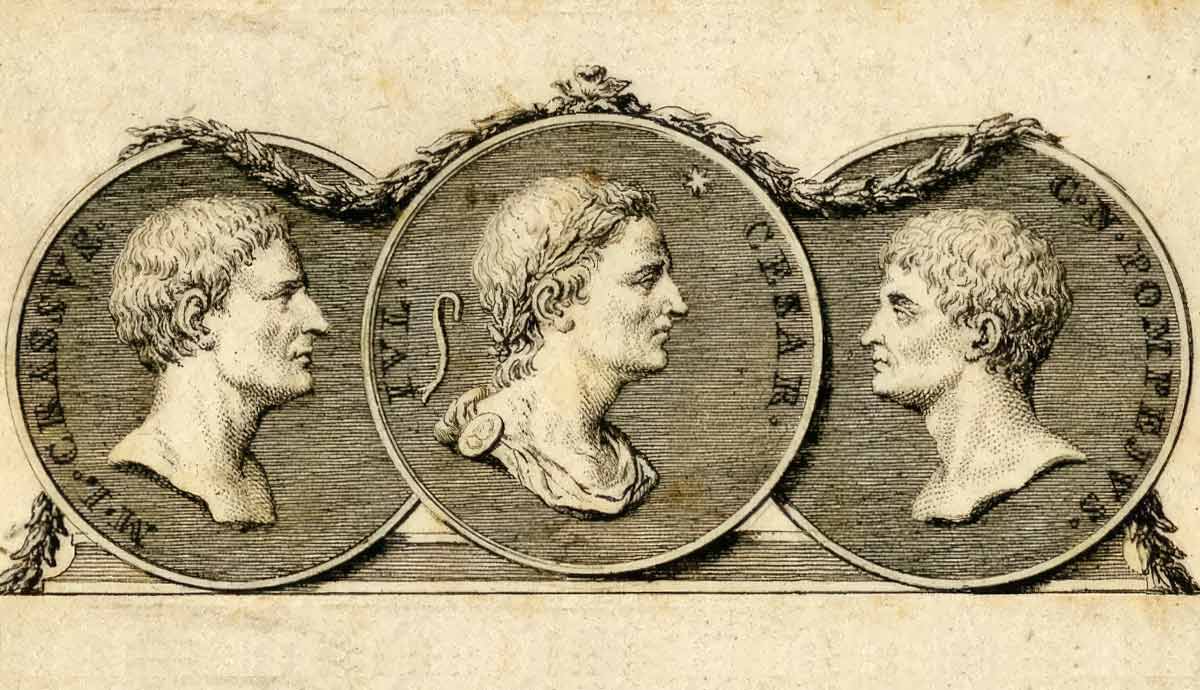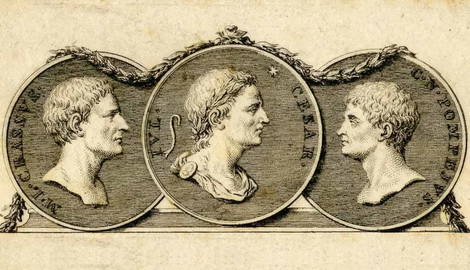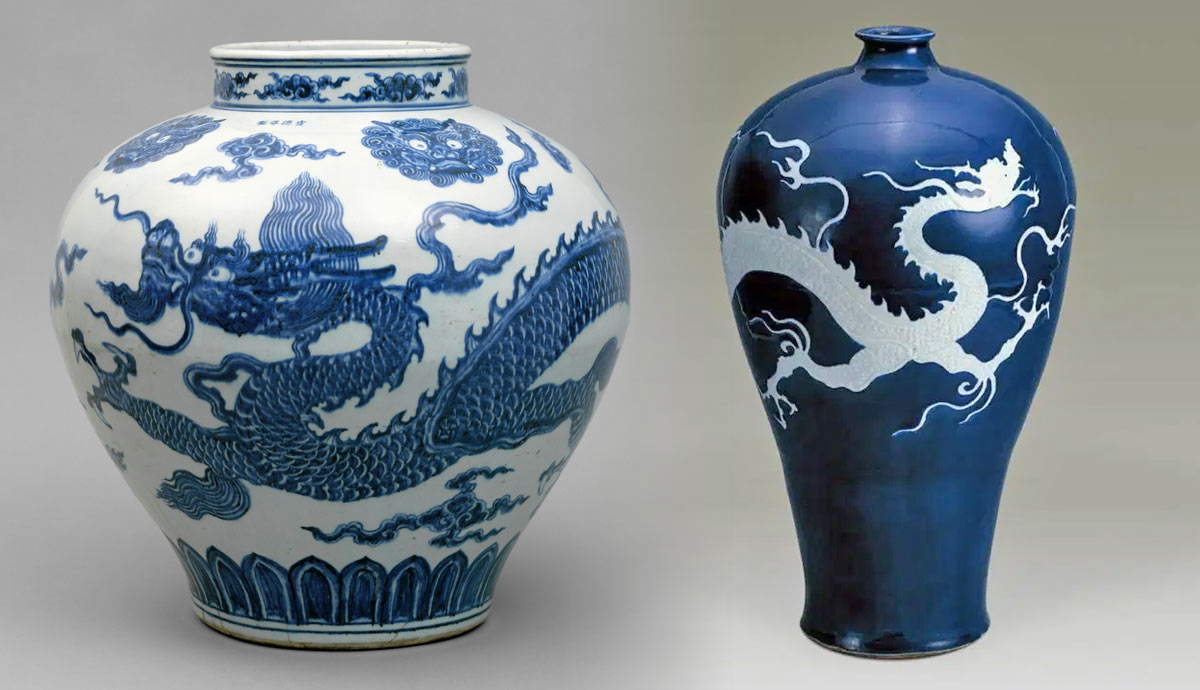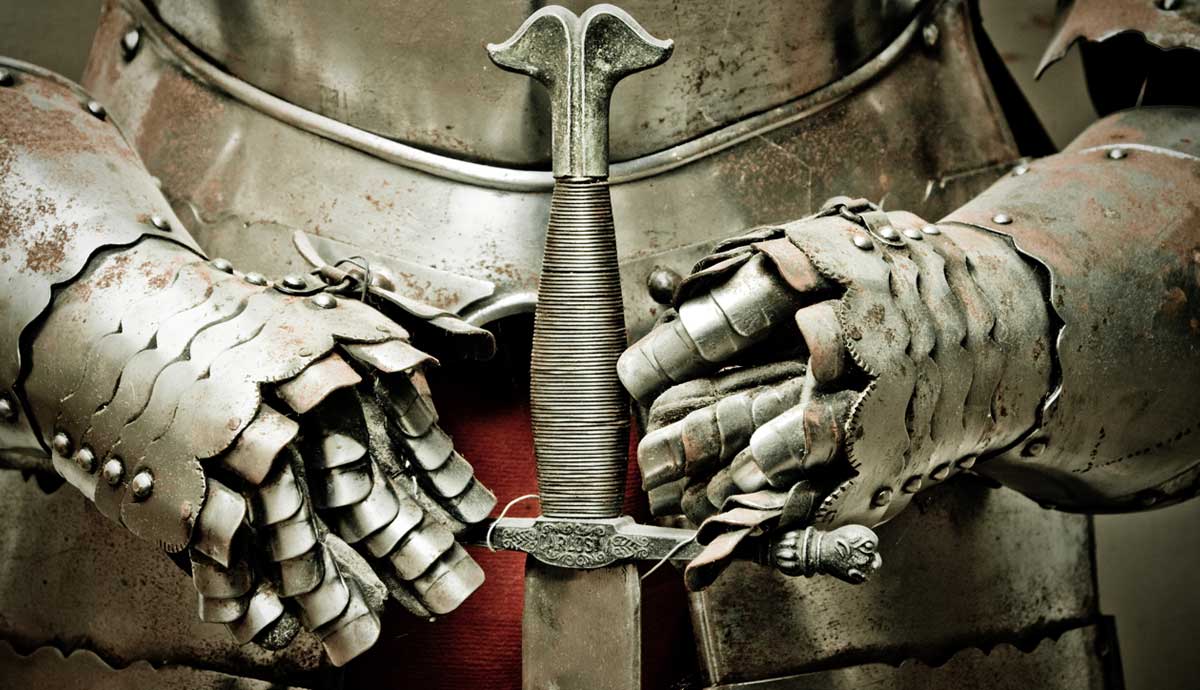
The First Triumvirate was an informal yet powerful political alliance during the last decades of the Roman Republic, formed by Julius Caesar, Pompey the Great and Crassus. Its primary aim was to help its members overcome opposition in the Senate and share power among themselves. Caesar, Pompey, and Crassus used their combined influence and resources to support each other’s political agendas, effectively bypassing constitutional obstacles. Although the First Triumvirate was not an official institution, the alliance significantly influenced the Roman politics until its dissolution following Crassus’ death in 53 BCE.
The First Triumvirate was an Informal and Secret Alliance

The First Triumvirate was an informal political alliance between Julius Caesar, Pompey the Great and Marcus Licinius Crassus. The Triumvirate was made in secret, around 60 BC, following the failure of its members to advance their political agendas in the Senate. By consolidating their power and influence and sharing their resources, the triumviri could bypass the opposition, push through their various programs, and secure lucrative positions for each member, making them the most powerful men in Rome.
It should be noted that the First Triumvirate is a misleading term, as it does not appear in any of the ancient sources. The triple alliance was an informal arrangement. Perhaps it would be more appropriate to follow historian Mary Beard and refer to it as a “Gang of Three.”
Julius Caesar, Pompey and Crassus Made a Coalition

The First Triumvirate emerged as a response to the political chaos and factionalism that plagued the Late Roman Republic. By the mid-1st century BC, corruption, social unrest, and military conquests had eroded the fragile equilibrium, dividing the Senate between the optimates, the conservative faction favoring the aristocracy and the populares, those who advocated for reforms to address social and economic issues.
Pompey the Great and Julius Caesar, despite their aristocratic backgrounds and personal differences, leaned towards the populares due to shared political goals. The Senate’s continuous opposition to their ambitions, particularly in recognizing Pompey’s military achievements and supporting Caesar’s political aspirations, pushed them towards an alliance with Marcus Licinius Crassus, the wealthiest man in Rome.
“The Gang of Three” Opposed The Senate

Each member of the First Triumvirate brought unique strengths to their alliance. Julius Caesar, from a prestigious aristocratic family, was a rising star with military ambitions and a keen political mind. Pompey the Great was a celebrated general, enjoying widespread support from both the army and the populace, thanks to his military successes. Marcus Licinius Crassus, the wealthiest man in Rome, sought high office and military glory, driven by a desire to match the accomplishments of his peers. Their motivations were deeply personal, fueled by a desire for power, recognition, and ability to push their political agendas without the Senate’s obstruction.
In 60 BC, Caesar returned from his governorship in Spain, seeking the consulship and a triumph. Pompey, fresh from his victories in the Third Mithridatic War, sought ratification of land settlements for his veterans in Asia, crucial for maintaining their loyalty and his power base. Crassus likely aimed to recover financial losses incurred during the food crises in the eastern provinces and to secure a legacy comparable to his allies.
The First Triumvirate Benefited Its Members

Setting aside their personal differences, Caesar, Pompey, and Crassus consolidated their power and influence to achieve goals that none could secure alone. The political alliance was solidified early on with the marriage of Caesar’s daughter, Julia, to Pompey. As consul in 59 BC, Caesar bypassed the Senate and implemented his agrarian reform, redistributing land to Pompey’s veterans and the urban poor.
The next step was to secure Caesar’s governorship in Gaul, which automatically gave him command over the legions in the area. Caesar would spend the next ten years subduing the local tribes, expanding Rome’s control, and enhancing military prestige. Pompey was named governor of Spain, while Crassus got command over the army in the East. He could now engage Parthia, Rome’s powerful rival.
The End of the First Triumvirate Led to A Civil War

Crassus hoped that victory against Parthia would bring him the military glory he desired. However, his defeat at the Battle of Carrhae in 53 BCE led to his death. The demise of Crassus and the earlier death of Julia, Caesar’s daughter and Pompey’s wife, dissolved the personal ties that kept the alliance together. Pompey, once hailed as “the Great”, who cleared Mediterranean from pirates and defeated Spartacus, Sertorius and Mithridates, now felt threatened by Caesar’s military triumphs.
The Senate saw the opportunity and allied with Pompey, demanding that Caesar return to Rome and relinquish his military command. Caesar feared that losing the legions would make him vulnerable, depriving him of power and influence. In 49 BC, Julius Caesar crossed the Rubicon with his legion, sparking the civil war.
The conflict ended with Pompey’s assassination in 48 BC and Julius Caesar becoming sole master of Rome until his assassination on the Ides of March 44 BC. Another civil war followed, with the victor, Octavian, fulfilling Caesar’s dream, dismantling the Republic, and becoming Augustus, the first Roman emperor.










